Short Fiction: A New Year’s Friendship
Elaine Walsh Barrington revs up her white BMW and reverses the car out of the double garage behind the house.
“I really don’t mind getting a taxi to the station again,” Lorna, her younger sister, says from the passenger seat. “You didn’t have to leave your New Years Day open house like this.”
The clenched jaw, that upward tilt to the chin mean that Elaine is pissed off and playing big-sister martyr.
A half hour ago, just as the two caterers came from the kitchen with platters of assorted appetizers, Lorna’s iPhone bleeped and it was the temp nursing agency texting to ask if she, Lorna, would fill in for someone who’s called in sick for the three-to-eleven swing shift at Massachusetts General.
Elaine says: “Lorna, before the end of January I wish you’d follow up on some of those job leads Peter and I have given you. You can’t tell me it’s that hard to find a permanent nurse position with more human hours. I mean, throw a stone into Boston and you’d hit a feckin’ hospital.” When she’s annoyed, Elaine forgets the expatriate, quasi-American accent and reverts back to sounding Irish.
The car tires crunch over the pebbled, circular driveway and, even with the windows shut against the afternoon cold, there’s that salty whiff of the sea.
They drive on past the rose gardens, then the cobbled-stone patio and the French doors to the dining room where, inside, the open-house guests stand around in little clusters, heads bobbing, mouths moving in glassed-in animation.
In September, Lorna moved from Cripton, England to her sister’s house in Waverly-by-the Sea. Her married sister’s upstairs guest bedroom, the agency nursing—it was all supposed to be a just a holiday, a stopover on her way to her next assignment for “Health Quarters,” the international NGO she’s worked with for 11 years.
Four months now and she’s been waiting on the overseas assignment that doesn’t seem to be coming, and she cannot get herself to call Health Quarters’ Washington DC office to ask why and where and when. Neither can she motivate herself to log onto Elaine’s computer to apply for a Boston job or, for that matter, to contact an estate agent to find a flat in the city. She’s trapped in this strange wintertime stasis, which is why she sits in the BMW passenger seat, her backpack on her lap like a child being driven off to school.
Lagos. Mogadishu. Harare. Cape Town. Earlier, when Elaine and Peter introduced her around (this is my sister; our little globe-trotting Mother Teresa), she blathered out her list.
“But I actually came here from England,” Lorna added. “I’d spent a year working at a refugee processing center in Cripton, 40 minutes southwest of London.”
She watched the guests’ smiles freeze. One man visibly recoiled. A woman in a white chiffon blouse wrinkled her nose. O.k. so a dilapidated English hospital-turned-refugee center wasn’t as exciting or chat-worthy as the hot brown places where her sister’s guests probably go on holiday or safari.
They reach the stone pillars where the driveway ends, then turn right onto the main road toward the Waverly commuter train station.
“Where did you say you’re working this week?” Elaine asks, the chin lowered and the voice contrite. “I know you told me but with all that’s been going on … ”
“Massachusetts General,” Lorna says. “A Med Surge ward this week. It’s taking me back to my old RN training in Dublin.”
They pass roadside mail boxes and avenues that quickly disappear between a double rows of trees around another huge house perched on the rocks over the Atlantic ocean.
In Africa, in those hot, desiccated places, everything felt strange at first, but then, by the time Lorna had fully unpacked her rucksack in a Spartan room, things had always turned comfortable and familiar. But now, it’s been four months since she landed from Heathrow, and here she is in her own self-created holding center where life sits at a distance, where she feels a persistent scrim between her and the house and the gardens and this road and the boutiques and galleries in the village of Waverly-by-the-Sea.
Maybe it’s not America. Maybe it’s her, Lorna, a 38-year-old woman who told the nursing agency woman the exact time to beep her mobile phone so she could flee the New Year’s Day open house that was, as far as she could tell, more about business than friendship.
Last week, just before Lorna left for her Christmas day shift, they set Peter’s iPad on the kitchen counter to Skype with their widowed mother and their brothers, Tommy and Séamus, back home in County Galway. Amid all the jokey comments and inquiries about the American weather and what they were going to have for Christmas dinner, Mam suddenly pushed her face right up to the computer screen. “Lorna, a Stór, you’re losing too much weight over there altogether. Jesus a Leana, sure you’re thinner now than when you were abroad there in them foreign countries.”
So in America I’ve become the stringy spinster sister, Lorna thinks now, as they drive past a roadside garden center, then a white Colonial house with a red ribbon trailing from the pine wreath on its front door. I’m a 38-year-old Miss Havisham who, when I’m not working my nocturnal shifts, I’m sitting in my seaside guest room pining for my man.
The man is Stefan, the Health Quarters anesthesiologist she stupidly followed from Cape Town to England–the man who, after his nightly shifts, used to cross the hospital quads to Lorna’s room and bed. The man who, she suspects, is behind the overseas assignment that hasn’t come and probably won’t at this point.
“Reckon you’ll be busy tonight?” Elaine asks. The jaw is fully unclenched. So she, Lorna, has been forgiven. For now.
“Probably. `Twas a pure madhouse last night. Wouldn’t be New Year’s Eve without your usual burns, fractures, two kids with alcohol poisoning. A highway pileup somewhere on the South Shore. Plus your usual overdoses and psychosis. Jesus! They shipped in this one fella from a detox somewhere.”
“Overdose?” Elaine asks.
“No. Listen to this. So this clown and his pal are admitted to a detox ward and they decide to knot a load of bedsheets together, make them into a kind of rope ladder. Then they opened the third-floor window, and the pal lowered the other eegit down to sneak off to the corner shop to buy cigarettes.”
Elaine’s perfectly made-up face turns suddenly animated. For all her staged, suburban primness, she relishes her sister’s gory hospital stories; she loves these real-live episodes of “E.R.”
Lorna adds: “Yeah. Just one problem, though. The fella holding the rope was this weasl-ey little thing, the size of a blackbird, while the lad climbing down must’ve been at least 20 stone weight if he was pound. So thwack! He’s only one story down when the sheets rip, and it’s a bloody miracle he only smashed his left ankle.”
Elaine slaps the steering wheel and gives a loud cackling laugh. “Jesus, you were always feckin’ brilliant at the stories. Just like Daddy. He’d tell a yarn and he’d have you wetting yourself laughing. Remember?”
The BMW bumps over a set of railroad tracks and then, a hundred yards on, they turn into the train station and its empty car park.
Lorna nods across the train track to the wooden benches beneath the painted wooden sign. The benches and the platform are empty; nobody but Lorna Walsh is taking the two-thirty inbound train.
“You don’t have to wait. I’ll be grand.”
“Lonnie, stop. I’m not leaving you standing here in the cold. Peter can hold the fort back there for a while.”
Lonnie. It was her old family nickname—back when they were both kids and when life was something you could smell and touch, not this long-running TV program with the sound turned down.
Through the windshield they watch an airplane, a silver dot in the winter blue sky. Elaine turns up the car heater. Suddenly, Lorna feels the familiar burp of sorrow rising from her gut. How could two sisters sit here in this car, live in the same huge house and know or tell or understand so little of each other’s grown-up lives and hearts?
Lagos. Mogadishu. Harare. They are closed chapters in a book—lives and places she made herself forget the minute the plane crested over the scorched landscape beneath.
Not Cape Town. That she remembers. Lorna Walsh’s big mistake was to let that hospital, that country overflow to another, to follow Stefan to England.
“I was thinking,” Elaine breaks the silence. “And Lonnie, please don’t take this the wrong way. But I was thinking maybe you should see someone. Like, my friend Natalie sees a great therapist; I could ask her–”
“—Have to go.” Lorna nods toward the single headlight between the winter trees, to the train shunting toward the tiny station.
The train carriage is packed—almost every seat full of parents and loud, fidgety kids.
“Can I sit here?” She asks a tall man in a brown leather jacket.
He nods, moves closer to the window to make room for her to sit next to him. He moves his backpack on the table so she can set down hers. The train is too hot. She takes off her coat and accidentally jabs him in the ribs with her elbow. “Sorry. I thought it’d be empty today.” She nods around the loud carriage. “I thought everyone would be at home writing their New Year’s resolutions.”
“Oh, are you Irish?”
“Yes.” She answers too briskly. No smile. She’s not in the mood to answer another list of questions about when she immigrated here and then, the usual rigmarole about his own ancestral roots and how his great grandmother landed here on an Irish famine ship from County Cork.
Her seat neighbor shuffles his long legs; his knee bumps hers. He’s one of those tall men who’s permanently trying to fit into too-small places.
Her phone beeps. Don’t. She tells herself as the train speeds south. Don’t check your iPhone to check if Stefan is texting you a happy New Year.
She checks. It’s a group text from Rhina, another Health Quarters veteran who now lives in Sidney. Some people have already texted back their emoticons and “same to you, Rhina sweetie.” Lost faces and places. Names from the closed chapters.
She looks up from the phone to see the man watching her. He smiles. Blue eyes. He smells of wood, of freshly cut timber. Thinning at the temples. Forty-ish, maybe a little older, she calculates. His cuticles are rimed with something black. A carpenter?
“You off out on a night on the town?” He asks.
“Going to work, actually.”
“Oh. No fun.”
“I’m a nurse.”
He pats the stained and oversized backpack on their shared table. “Ice skates. I’m sure you heard. The city is waving all fees for the Frog Pond and all the city museums today. Part of the new mayor’s ‘city of the arts’ thing. Still, can’t look a gift horse.” He nods toward the luggage racks above the neighboring seats. “Looks like all these folks heard about it, too.”
The train’s luggage racks are stuffed with puffy coats and knit hats and ice skates peeping from tote bags. The family sitting one seat up and across from them is sharing a Thermos full of something that smells chocolate-ey.
Outside, the winter light is waning beyond the houses and backyard sheds. Blobs of last week’s snow dot the tiny back gardens, are lodged along the chain link fences along the tracks.
“Party hearty last night?” He asks.
“Nope. Don’t like New Year’s Eve.”
“Me `neither. Too many happy or, rather, pretend-happy people. Too many”–He makes air quotes between them—’circus animals all on show.'”
She’s too surprised to hide her shock at a man in a tatty leather jacket, a man who smells like wood shavings quoting from Yeats. Shit. Has she really said, thought that? Christ. I’m starting to sound, to think like my sister.
“Yeats–W.B. himself,” he says, as if he’s read her thoughts. “One of yours, isn’t he? One of your countrymen?” He folds his arms, stretches his legs to lean all the way back against the vinyl seat. “W.B. was right, though. Half of us going through the motions, muddling through and pretending we’re not.”
In for a penny, Lorna thinks. I’ll never see this man again anyway. He’s the proverbial stranger on the train.
“Yeah. It’s been, well …” Trying for wry humor, she mimics his air quotes. ‘The winter of my discontent.’ Actually, my big sister, who I’m staying with, her and my brother-in-law back there in Waverly Farms, well, she just told me that I should see a therapist.”
He turns to fully face her. Blue, blue eyes. Crinkly eyes that are trying very hard not to laugh at her, at what she’s just confided. “A therapist? Really? And … what do you think yourself? About this therapist business? Sorry, I didn’t get your name?”
“Lorna. Lorna Walsh.”
He extends a handshake. “Ken. Ken Brown–the third. I’m a boatbuilder. I build and restore old two-masted fishing schooners. They were the original cod-fishing boats around there parts. Not much call for boat repair this time of year, so I do some indoor carpentry work to pay the bills. Play some music gigs when I can get them. Go ice skating. Recite Yeats to pretty girls on trains!”
She blushes. “Sorry,” he says, turning instantly serious. “I’m not trying to be sketchy.”
“No. No. It’s not. I mean, you’re not.” Is he? Thank God for a full train, for people around her, for the mobile phone in her coat pocket.
They fall silent. She shifts, maneuvers toward the seat edge to put some distance between them.
The train slows. The conductor announces the next station where more people get on, then troop down past their seat with their chaffed, frozen faces, more tote bags and backpacks and children’s runny noses.
He’s resting his elbow on the window ledge (no wedding ring); his chin in his upturned palm. When she looks, there, in the dusty window are dislocated bits of both of them, muddled and mirrored among the train’s reflected lights.
“Nobody’s happy all the time,” Ken Brown says. “I don’t know how long you’ve lived here, but in this country we just think we should. So when we’re not, we go running for something or someone to fix it, to give us our rightful, our constitutionally-promised right.” He makes another air quote. ‘Life, liberty and the pursuit of happiness.’ Blah, blah, blaaaah. You want my opinion? It’s been the ruination of us, the reason for all these circus animals–who, by the way, sometimes can’t perform on demand.”
“Chelsea!” Drones the conductor. “Chelsea Station next. Then next stop, folks, is North Station, Boston. Our last stop. Folks, our last stop is Boston’s North Station.”
In Boston she wants to flee, to get herself lost among the families trooping up the platform along the stationary train. “Goodbye,” she says, as she loops her arms into her backpack straps. “Enjoy your evening’s ice-skating.”
She’s crossing the coffee-smelling concourse, almost at the station exit when she feels a hand on her arm. “Wait!” he says. “Jeez. You really are a nurse. Nobody else walks this fast.”
“I have to get to work,” she says. “Really.”
He overtakes her, blocks her path toward the door and stands there with his arms spread. “Oh, come on! You can’t just call in sick? I mean, you are, right? Sick? You told me yourself” — He grins, then mimics someone writing on a prescription pad. “I’m officially diagnosing you with SAD–Seasonal Defective Disorder.”
“It’s ‘affective–affective disorder.” Despite herself, she grins back, then walks around him and out the double doors.
He catches up with her again on Congress Street. “Only one cure,” he says, slightly out of breath as they walk elbow to elbow. “Only one cure for what you’ve got.”
Oh, Christ. So he really is a creep, a stalker, the type who makes a move on any woman who gives him the time of day. In a minute, if he doesn’t push off, she’s calling the cops.
“Come ice skating at the Frog Pond with me. Please. If you hate it after 10 minutes you can leave and we’ll never see each other again. Promise.”
From Cambridge Street they climb the cobbled streets of Beacon Hill, then wait for the traffic light to cross to Boston Common where they follow the tinny music toward the Frog Pond.
“I haven’t skated for years,” Lorna shouts over a 1980s disco tune as she sits on a bench outside the concession stand, lacing up her freebie-rented skates.
The trees around the pond are strung with old-fashioned, full-sized light bulbs.
Ken pushes off, shows off, gliding past, towering over all the hand-holding teens and kids.
The evening air is icy against her cheeks as she tries to remember how to stay erect and moving on the ice.
The woman at the temp nursing agency clearly didn’t believe her when she called. She was mad as hell. This is madness. This is great fun. She stumbles, arms thrashing as she scrabbles wildly at the air then falls on her arse. He looks behind him, then pirouettes around and skates back to her, shouts over the music to ask if she’s hurt or broken something.
“Here, take my hand.”
She clutches his arm to hoist herself up. No. Nothing fractured. Then off they go, Lorna and this American stranger, his gloved hand in hers, whizzing along with everyone else.
Halfway around the Frog Pond she looks up at the Boston night sky where, for once, the stars look bright and clear.
—
 Áine Greaney has published four books and her essays have appeared in Salon.com, Creative Nonfiction, Books by Women, The Feminist Wire, The Boston Globe Magazine, NPR Boston and Writers Digest Magazine–and others.
Áine Greaney has published four books and her essays have appeared in Salon.com, Creative Nonfiction, Books by Women, The Feminist Wire, The Boston Globe Magazine, NPR Boston and Writers Digest Magazine–and others.
Her personal essays have been cited as a notable in Best American Essays, and her work has been nominated for a Pushcart Prize.
Find out more about her on her website: www.ainegreaney.com
Category: Short Fiction
Comments (2)
Trackback URL | Comments RSS Feed
Sites That Link to this Post
- Short Fiction: A New Year’s Friendship | WordHarbour | January 7, 2016





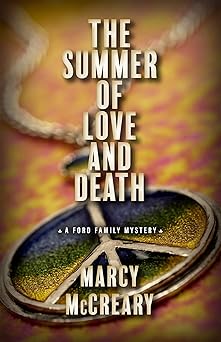


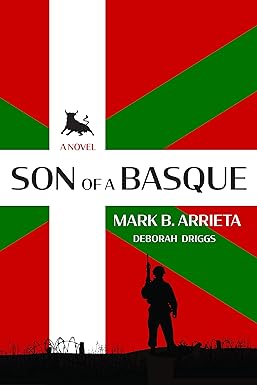

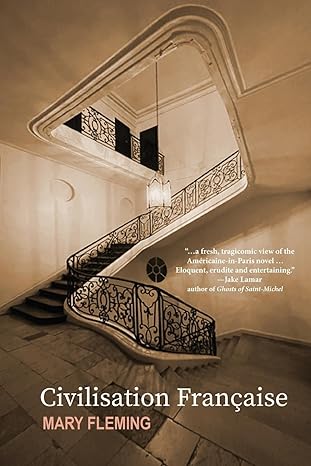

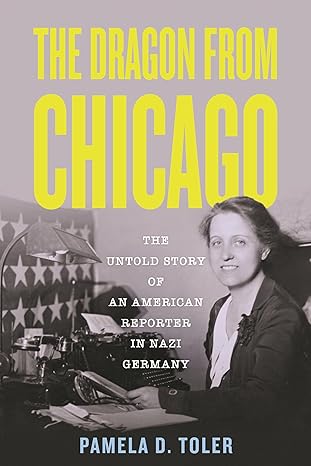


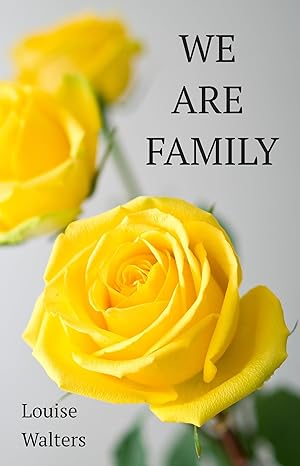
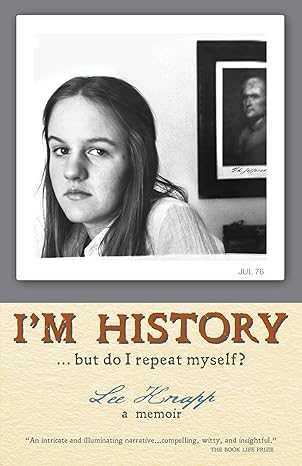
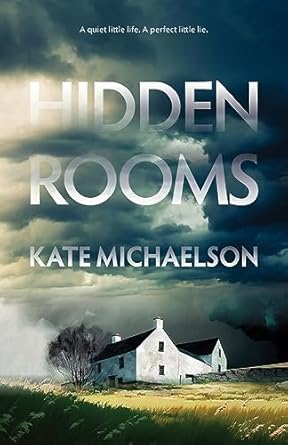

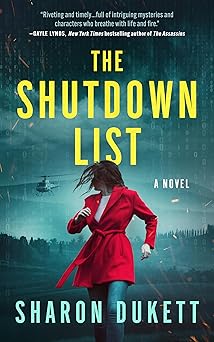
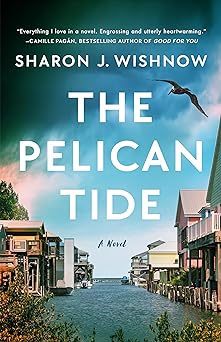

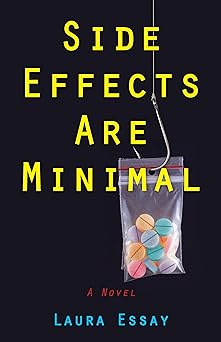
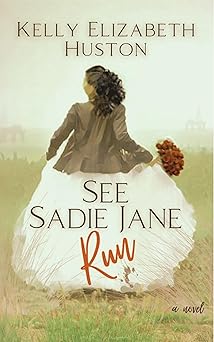
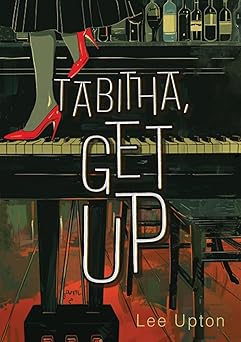

Nicely told, Aine. As a 1st generation Irish RN who lives on Boston’s North Shore, the character
Immediately grabbed my interest.
As a beginning romance novelist, studying the way you crafted the story was a great lesson.
Glad I found this. Best, Mary